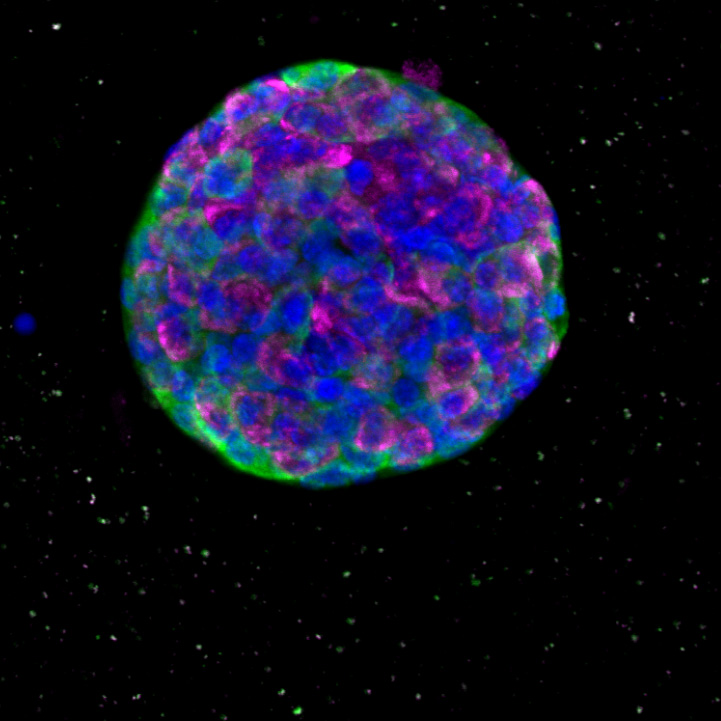Curriculum, Curriculum Highlights, and Plan of Study Information
 Inspired and motivated by present-day challenges associated with diabetes and its complications, the BTDR curriculum is designed to provide a strong foundation in engineering and analytical, physical, and computational sciences, all within the context of diabetes and metabolic disease. The program moves beyond hypothesis-driven research, incorporating principles and practices of engineering design, standardization and validation, regulatory policy, technology translation, and entrepreneurship.
Inspired and motivated by present-day challenges associated with diabetes and its complications, the BTDR curriculum is designed to provide a strong foundation in engineering and analytical, physical, and computational sciences, all within the context of diabetes and metabolic disease. The program moves beyond hypothesis-driven research, incorporating principles and practices of engineering design, standardization and validation, regulatory policy, technology translation, and entrepreneurship.
Operating within the context of their program-specific graduate curriculum requirements (BME, IBSC, or MSTP), all BTDR trainees must satisfy the following BTDR-specific requirements:
- Identification of co-mentors with synergistic areas of expertise, specifically one with expertise in engineering, computational sciences, or technology development and the other with expertise in medical science and clinical research relevant to diabetes and metabolic diseases
- Diabetes research immersion and clinical evaluation
- BCHM 562 Biochemistry (3 cr)
- G736 Endocrine & GI Function (1 cr)
- G805 Diabetes & Obesity (2 cr)
- BMS 60200 Physiology Domestic Animals I (3 cr; Blood, Muscle, Nervous, and Cardiovascular); meets with BMS 81100 which is a reserved section only for DVM students.
- BME 595 BIOMEDSHIP—Lean Launchpad for Life Sciences and Healthcare (3 cr)
- Responsible Conduct in Research (PhD: 2 course series; MD-PhD: 3 course series)
-
Regulatory Affairs Coursework (3 cr; select at least 1 from the following course list)
- BME 562 Regulatory Issues Surrounding Approval of Biomedical Devices (3 cr)
- BME 563 Quality Systems for Regulatory Compliance (3 cr)
- BME 561 Preclinical and Clinical Study Design (3 cr)
All students receiving funding from the Diabetes Training grant must submit a progress report and CVs/resumes at the end of their first year of training prior to receiving their second year of funding. Members of the Executive Committee evaluate submitted materials to determine if sufficient progress is being made toward program milestones prior to awarding the second-year funding.
Curriculum Highlights and Brief Course Descriptions
Diabetes research immersion and clinical evaluation—Admitted students initiate BTDR activities in the summer prior to their first fall semester by performing research within their co-mentors’ laboratories and participating in a Diabetes Research Immersion and Clinical Evaluation Workshop. This session is held on the IUSM campus and hosted by Dr. Raghu Mirmira who provides an overview of the challenges associated with diabetes and other metabolic diseases, emerging innovations for diagnosis and treatment, and barriers to technology translation. Trainees then tour various CDMD and IUSM core facilities, including the Islet and Physiology Core, Swine Core, Microscopy Core and Translation Core, to learn about specialty services and resources. The immersion session ends with one-on-one meetings between each trainee and their IUSM co-mentor.
Diabetology Courses—Gateway courses for the BTDR program include graduate-level biochemistry (BCHM 562) and physiology (BMS 811) to provide students with a fundamental understanding of chemistry behind biomolecules, bioanalytical tools, biochemical mechanisms of the body, and the hierarchical structure and function of tissue and organ systems. In BMS 811, faculty members within the College of Veterinary Medicine provide didactic lectures and interactive laboratories, addressing normal mechanisms and interactions associated with the blood, excitable tissues such as muscle and nerve, and the cardiovascular system. These foundational courses are followed by in-depth study of endocrine and GI function and the pathophysiology of diabetes and obesity within G736 and G805, respectively. G736 addresses molecular mechanisms of insulin resistance, the β cell response to insulin resistance, adipose as an endocrine tissue, plasma lipoproteins and liver function, all of which prepare the students remarkably well for the cutting-edge aspects of diabetes and obesity lectures which are discussed in the subsequent G805 course.
Regulatory Affairs and Entrepreneurship—Active and team-based learning experiences in the areas of regulatory affairs and entrepreneurship are a highlight of the BTDR curriculum. BTDR trainees consistently rank these courses as their favorite and most eye-opening experiences. BIOMEDSHIP uses the lean startup method to explore the commercial viability of an innovation based on Purdue research and prequalifies teams for the NSF National Innovation Corps Program. Trainees form teams with MBA students and engage in defining and validating the value proposition, customer base, and commercialization pathway for their innovative technology. This course is taught collaboratively by faculty and staff of Purdue’s Weldon School of BME, Krannert School of Management, and Office of Technology & Commercialization. In a separate series of courses, trainees have the opportunity to gain advanced knowledge and practical experience in regulatory affairs for medical devices. This course series is designed to educate students on principles and strategies associated with technology translation and commercialization, including regulatory pathway development, preclinical and clinical trials, and quality systems. These courses are taught collaboratively by BME faculty, regulatory consultants, medical device industry representatives, and clinicians, providing valuable networking opportunities for trainees.
